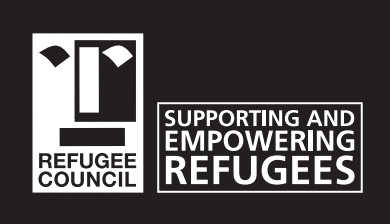Illegal Migration Act 2023 and new Safety of Rwanda (Asylum and Immigration) Act 2024 will create "huge cost and chaos"
A short but significant new briefing paper published today by the Refugee Council warns that last year's Illegal Migration Act 2023 (IMA 2023) and this year's new Rwanda legislation will cause chaos in the asylum system and leave huge numbers of people in permanent limbo.
 You can download the 10-page briefing paper here.
You can download the 10-page briefing paper here.
In a post on X today, the Refugee Council said bluntly that its new report shows that the UK asylum system is heading towards a 'catastrophic meltdown' because of the IMA 2023 and the Rwanda Plan.
Under the IMA 2023, the majority of asylum claims made in the UK are considered permanently inadmissible, which means that the claim will never be considered in the UK's asylum system, no matter how strong it may be.
Estimates published today by the Refugee Council calculate that around 105,000 asylum seekers are likely to have had their asylum claim declared inadmissible by the end of 2024. The IMA 2023 also introduces a duty to remove, which means that the Home Secretary will be under a duty to arrange for the asylum seekers' removal to their country of origin or a safe third country.
While the Refugee Council notes that relevant provisions of the IMA 2023 are not yet in force, they are expected to be soon.
The briefing explains: "At the time of writing, neither the duty to remove nor the automatic inadmissibility of asylum claims have legal force. As soon as they are in force, which the Refugee Council expects will happen soon after the Safety of Rwanda (Asylum and Immigration) Bill receives Royal Assent, then they will apply to all those who have arrived irregularly since 20 July 2023."
After the Refugee Council briefing was published, the Safety of Rwanda (Asylum and Immigration) Bill received Royal Assent today, becoming the Safety of Rwanda (Asylum and Immigration) Act 2024. The new Act is available here.
As the Refugee Council notes in its briefing, only a small proportion of asylum seekers with inadmissible claims under the IMA 2023 are ever likely to be removed to their own country or relocated to Rwanda.
The Refugee Council calculates that around 9,000 people will be eligible to be removed to their own country and the Home Office may be able to remove 2,000 people to Rwanda by the end of the year. This will leave an estimated 93,000 people stuck in permanent limbo.
The briefing paper explains: "While the Rwanda Plan is uncapped, in reality the number of people who can be removed to Rwanda will be limited by the capacity of the Rwandan system and logistical challenges that the Home Office face. The UK Government has not set out how many people will be sent to Rwanda, but reports have suggested that 5,000 people may be removed under the plan in the first year, with 2,000 of those in the first six months."
The cost of supporting tens of thousands of people in limbo is estimated to be over £6 billion annually: "Assuming that the people left in limbo are successfully able to apply for support under the Immigration and Asylum Act 1999, at the end of 2024 the Home Office would be spending £17.1 million per day to provide accommodation, the vast majority likely to be in hotels. This would be equivalent to £6.2 billion a year."
Despite all the focus on the Rwanda Plan, the Refugee Council says the asylum system that any government will be dealing with at the end of 2024 will be shaped above all by the IMA 2023.
In concluding, the Refugee Council emphasises that the IMA 2023 and the Rwanda Plan will create "huge cost and chaos", "dysfunction and disorder", and will lead to a "meltdown" of the asylum system.
Calling for the legislation to be scrapped, the Refugee Council said: "Any Government that wants to operate an effective, efficient and fair asylum system must repeal the IMA 2023 and the Safety of Rwanda Act at the earliest possible opportunity. In the meantime, the opportunities contained in the legislation to allow cases to be processed in the UK and leave granted to those who are recognised as refugees should be utilised.
"Instead of extinguishing the right to asylum in the UK, the focus should be on running a fair and efficient system. It should be a process that aims to make the right decision first time, so that those who are recognised as refugees can get on with their lives in the UK, and those who are found not to be in need of protection are enabled to be removed with support and humane treatment if it's safe to do so. This should be accompanied by the creation of more safe routes for refugees to reach the UK and an increase in international cooperation to reduce the number of people taking dangerous journeys."